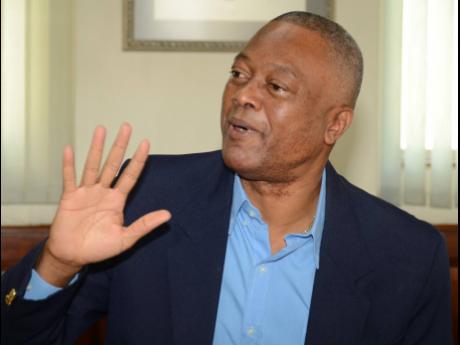Jamaica needs Me Too purge, says Roberts
As lawmakers review a bill to address the vexed issue of sexual harassment at the workplace, a trade union expert is suggesting the establishment of a social movement locally to succour victims.
“There is a need for the equivalent of a Me Too Movement in Jamaica that gives the victims of sexual harassment an opportunity to seek comfort and support and counselling where necessary,” Danny Roberts, head of the Hugh Shearer Labour Studies Institute, UWI Open Campus, said on Wednesday at a virtual roundtable on sexual harassment.
The Me Too movement, which exploded in the United States in 2017, is a social movement against sexual abuse and harassment where people publicise allegations of sex crimes committed by powerful and/or prominent men.
The discussion was staged on Wednesday by the European Union-funded Spotlight Initiative Jamaica to contribute to ongoing public dialogue on the sexual harassment bill now before a joint select committee of Parliament.
The trade union veteran observed, too, that there has been increasing incidence of men being harassed at the workplace.
He highlighted a case where a male worker revealed, during a workshop, that he had been sexually harassed. According to Roberts, the initial reaction of the men in the forum was that he had been harassed by a woman.
However, he said the man later revealed that he had been harassed by a male.
“It was only after speaking to him that I understand and appreciate the trauma that the victim suffered,” said Roberts, who added that the man started to question, ‘Why me? What have I done? What signals have I sent?’
“... We have to stop and learn to appreciate that men don’t want to be harassed by anybody, women or otherwise.”
He wants workplaces to facilitate counselling sessions for both the victim and perpetrator.
Roberts said that in the same way that industrial companies display and observe safety measures as part of their daily operations, a zero-tolerance environment should be created at the workplace that frowns on and rejects any signs of sexual harassment.
He proposed that sexual-harassment training should begin at the early childhood level, where youngsters are trained to respect themselves and others.
United Nations Development Programme (UNDP) Resident Representative Denise E. Antonio applauded the Jamaican Government for making the bold step towards finalising the sexual harassment law.
She said workplaces are battle zones for too many women and men, many of whom are suffering in silence, fearing loss of jobs.
“We must recognise sexual harassment for what it is. It is an insult on the dignity, productivity, and career perspective of all, men, women, boys, and girls,” Antonio said.
In the European Union, 40 to 50 per cent of women report some form of sexual harassment or unwanted sexual behaviour in the workplace.

